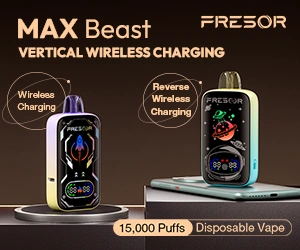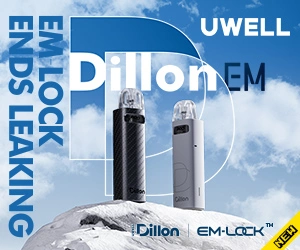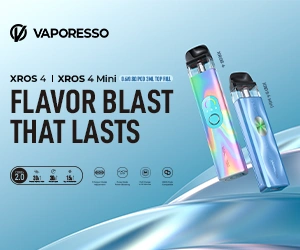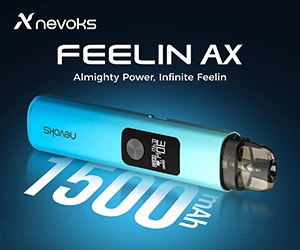The Consumer Advocates for Smoke-free Alternatives Association (CASAA) recently held an interview with Dr. Brad Rodu to discuss the current sentiments that vaping and other smoke-free alternatives are facing today.
The interview, titled Vaping & Tobacco Truths with Dr. Rodu, was streamed by CASAA on April 16, 2022.
During the interview, the panel discussed a host of topics, ranging from smoke-free alternatives like snus and nicotine pouches, the link between underage smoking and vaping, and the Truth Initiative Campaign.
There was a large amount of discussion reviewing the myths and facts regarding vaping and heat-not-burn products like IQOS. The continuum of risk was also discussed in the context of vaping and smoke-free alternatives.
“They’re all the way down close to zero when you compare them to smoking,” Dr. Rodu went on to state when considering the effectiveness of having smoke-free alternatives and traditional tobacco smoking on the same continuum.
Who is Dr. Brad Rodu?
Dr. Rodu is a Professor of Medicine and an Endowed Chair of Tobacco Harm Reduction Research at the University of Louisville. He has been researching tobacco harm reduction for over 25 years, coming into the sphere in 1994. He has published a number of medical papers relating to this field. His work in smoke-free alternatives is rooted in cancer prevention.
The Discussion
The panel discussed a number of areas of where misconception revolving around smoke-free alternatives and vaping is rife, be it as a result of misinformation from large organizations like the CDC or damning legislation.
This misinformation has played a huge role damning these products in the eyes of both the public and lawmakers. Officials with access to proper information would allow for a better understanding of the true role vaping and other smoke-free alternatives have when considering tobacco harm reduction (THR).
Issues with Vaping Research
Issues with ongoing research practices revolving around vaping and e-cigarette use have also come more into question in recent years.
“This is one of the main problems in studying anything with vaping, is that the vast majority of them used to smoke or are still smoking,” Dr. Rodu mentions. “And so it’s very hard to discern the specific effects from vaping, separating them from smoking. I think a lot of the researchers don’t care about distinguishing when they can blame vaping for almost anything indiscriminately.”
A huge concern of this type of research stems from financial gain through anti-vaping advocacy. It is no secret that big tobacco and smaller vaping manufacturers have been at odds with one another due to the diminishing popularity of traditional smoking and the rising popularity of vaping.
This results in opposition to vaping on both ends of the spectrum, which is a cause for the vaping legal landscape seen today.
The Relationship Between Underage Vaping and Smoking
The panel went on to discuss the link between underage vaping and smoking – a hugely significant driving force behind almost all vape legislation. Numerous recent vape bans have cited underage vaping, and the risk of underage vapers transitioning to traditional smoking as the purpose of the bans.
Despite this, Dr. Rodu went on to illustrate a truer reflection of this relationship than what is commonly promoted by groups like the CDC. While it is true that underage vaping is on the rise, and has been since 2014, underage smoking on the other hand has possessed a largely substantial decrease.
According to Dr. Rodu, underage smoking has decreased by approximately 11 percent between 2011 and 2020 where only 4.6 percent of teens alleged to smoke. It is important to bear in mind that this number includes teens who vape and smoke in conjunction. The number of high school students that transitioned solely to cigarette smoking was seen to be hovering around one percent.
Again, this supposed link between underage vaping and future smoking addiction is the key driving factor behind the large majority, if not all, vaping bans. Furthermore, legislation that seeks to ban flavored vape products, typically including menthol, almost always cites the attractiveness of these flavors to draw the youth into nicotine addiction.
Knowing that the link that forms the basis of these bans is seemingly unfounded calls into question the true motives behind such legislation. This is just another example of misinformation being so prominent, even the law-making rank in many cases.
What is The Continuum of Risk?
The continuum of risk refers to the inherent risk different tobacco and nicotine products possess. To understand the continuum of risk, traditional cigarette and cigar smoking is typically seen as the most significant risk, possessing the largest amount of health implications.
The risk associated with vaping is often exaggerated by various research groups and anti-vaping organizations, allowing for the misconception that these products are in the same region in terms of risk as traditional cigarette smoking.
What is CASAA and What Does it Do?
CASAA is a nonprofit organization dedicated to providing consumers with correct information regarding tobacco harm reduction. The organization, consisting of over 250 thousand members, receives no financial compensation for its work, meaning it is less likely to be swayed by biases.
CASAA has done excellent work to disparage a number of myths and misconceptions through research and fact-finding about vaping and smoke-free alternatives since 2009. The consumer advocacy organization also features excellent advocacy regarding legislation and policy-making around vaping and smoke-free alternatives.
In Summary
Both Dr. Rodu and CASAA have made great strides in attempting to reduce the amount of misinformation that is currently so widely seen regarding vaping and other smoke-free alternatives. The interview held between the two identities presented several points of departure worth exploring to better understand the place that vaping and e-cigarettes hold as a means for harm reduction.
It is highly recommended to watch the whole discussion as there is a large volume of information presented by Dr. Rodu that is not covered here.










Add comment